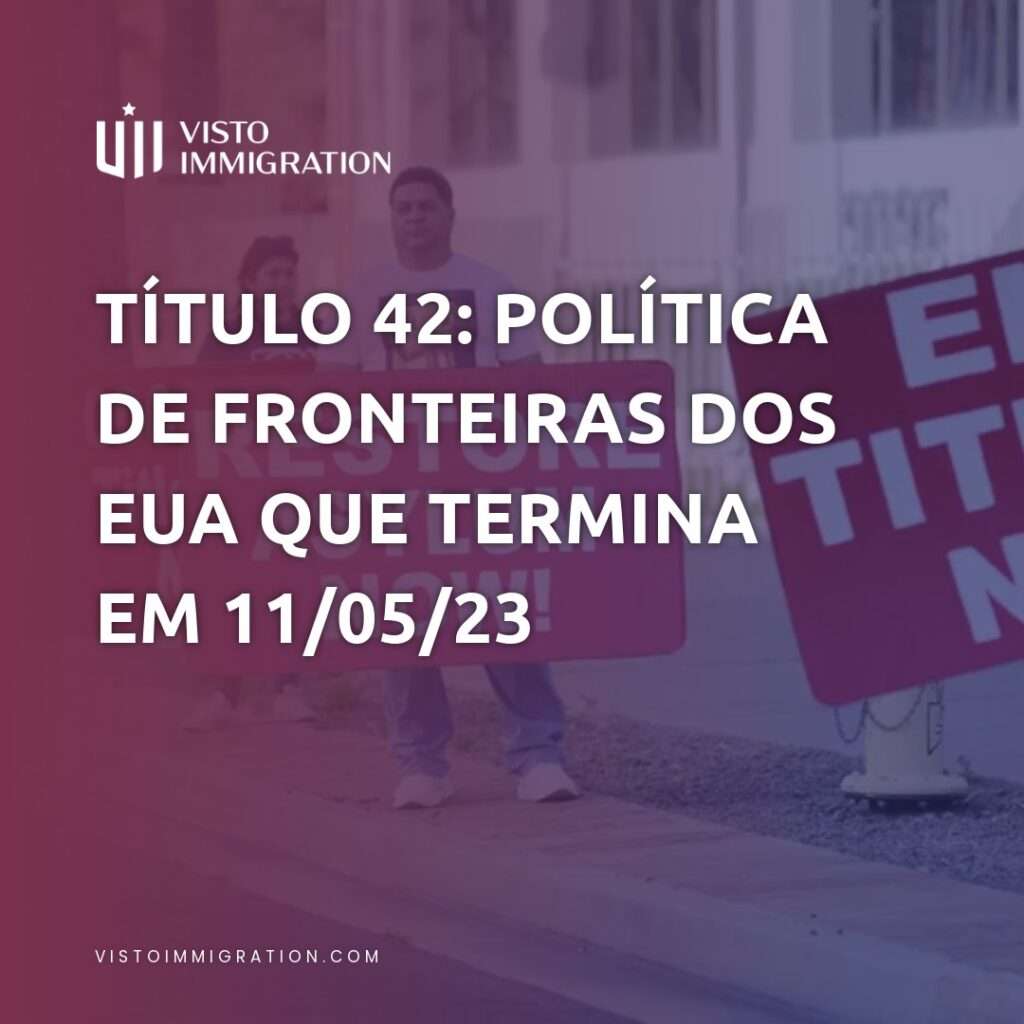
In recent years, the authorities of the United States have made many important and controversial decisions regarding immigration policy. One such policy is Title 42, which was implemented at the beginning of the Covid-19 pandemic. This policy allowed the U.S. government to close its borders to illegal immigrants in order to help curb the spread of the virus.
U.S. border policy is something that has always been a matter of controversy. Some people argue that the current policy is too restrictive, while others believe that it is necessary to protect the country and maintain national security. However, regardless of your stance on immigration policy, it’s important to understand what Title 42 is and how it has affected U.S. borders in recent months.
What is Title 42?
It is a public health measure that was implemented in March 2020 in response to the Covid-19 pandemic. The measure allows U.S. health officials to prevent the entry of people who may pose a risk to public health, including illegal immigrants. Since the implementation of Title 42, U.S. borders have been closed to most illegal immigrants.

How has this affected U.S. border policy?
Since the implementation of Title 42, the number of illegal immigrants apprehended at U.S. borders has decreased significantly. According to official statistics, in March 2021, U.S. border authorities apprehended more than 170,000 illegal immigrants, while in April 2021, the number dropped to just over 17,000. This means that Title 42 has had a significant impact on U.S. borders and immigration policy in general.
The U.S. Centers for Disease Control and Prevention issued an order limiting migration at the southern and northern borders, saying it was necessary to reduce the spread of the coronavirus. The virus was ravaging the U.S., schools were closing and hospitals were filling up, and President Donald Trump was trying various ways to limit migration, his main political issue.
Immigrant rights advocates have criticized Title 42 for violating human rights and harming asylum seekers in the U.S.
Many observers argue, moreover, that this policy may justify discrimination against illegal immigrants, especially those who are members of ethnic or racial minorities.
What will happen when Title 42 ends?
Title 42 is scheduled to expire on May 11, 2023. However, it’s important to note that someone isn’t going to immediately reverse U.S. border policy. It is possible that health officials will continue to impose restrictions on the entry of illegal immigrants into the United States even after Title 42 expires.
However, for many immigrant rights advocates, the end of Title 42 is a cause for hope. They argue that the policy was unfair and discriminatory
In addition, many believe that the policy violates the right to apply for asylum and endangers the safety of immigrants. Above all, with the end of the policy, it is hoped that the Biden administration will be able to implement new immigration and border measures that are more humanitarian and respect the rights of immigrants.
What will happen to immigrants who were expelled under Title 42?
It is not yet known for sure what will happen to immigrants who were expelled under Title 42. Therefore, some experts believe that immigrants affected by Title 42 may have the opportunity to return to the United States and seek legal protection, while others claim that expulsion could deter future immigration applications.
In any case, it is important for immigrants affected by Title 42 to seek legal advice to understand their rights and options.
The Role of Visto Immigration
Visto Immigration is an immigration consulting and advisory company that helps clients realize their dream of legally residing in the United States. Our team includes immigration professionals with more than 20 years of experience. Are you an immigrant in Florida and worried about the new anti-illegal immigrant law? Contact us for information and guidance on your immigration possibilities.
Visto Immigration - The information provided on this blog is for general informational purposes only and should not be interpreted as legal advice or client solicitation. If you require legal advice for your specific case, you should seek the counsel of your own lawyer or legal counsel.





